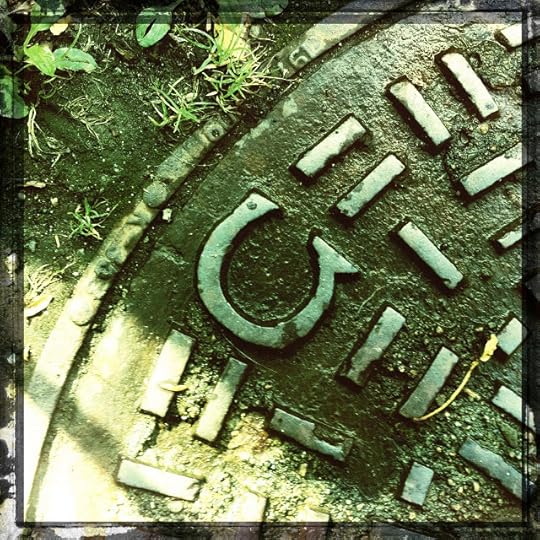The End of the Aim of Poetry
 Geof Huth, "G" (18 August 2011)
Geof Huth, "G" (18 August 2011)The night has gotten away from me, as it usually does. I am gathered together in a ball of reading, on paper or screen, and small missives slip from beneath my fingers out into the world. My voice may communicate a little, but it is usually my fingers who do the work. My fingers, it seems, do the bulk of the work.
I have hands the shape of making, and so they do what bidding I might for them to do. They photograph the world as I walk through it. They capture the sound of talking as I work through it.
It is all so mysterious, this dependence on inspiration, which is simply the breathing in of the world as air and the exhalation of it as breath. It leaves warmer but changed. Stripped of its oxygen, it no longer supports life, but we believe so much in art, in artifice, in the freezing of existence into an immutable form (or putatively so) that we believe we can live on that product of inspiration: the poem sat down on a page, the photograph clicked as a representation and an undermining of reality, the song sung or the voice let go to make a word, or nearly so.
Just a thought. I explain it better here:
Speech to the Disassembled Masses (mp3)
Until the siren song takes me over.
What poetry is to me is something so simple as to be nothing more than nothing, so complex as to be nothing less than everything. (These are the kind of stupid things poets say, but only because it is through such words that we can get to an understanding of the misunderstanding the earth and cosmos, even all of this wide black inexhaustible existence.)
Poetry is the material of language, and so it is language as purely as it can be, so pure as to range beyond language to ur-language, to the particles of language.
If we can see the shape of the text of it, it could be a poem. You could be a poem if you could speak a word out of your mouth, if you could speak a moth out of your mouth. You could be a poem if the words you spoke were full of insistence but empty of meaning. If you play with the sound a voice can make, then you may have made a poem. If you could set a number of words together in syntactical order and hint at an unmade point, than you may be a maker of poems.
But you are probably already a poem.
Poems are probably already decorating your body.
Your breath is likely a poem.
If she leans in to breathe your breath, she is probably just listening for your poem.
When she finally sees it, she will cry, because that is what follows from laughter.
It is a sound poem, she might say.
<i>ecr. l'inf.</i>
Published on September 19, 2011 20:59
No comments have been added yet.



